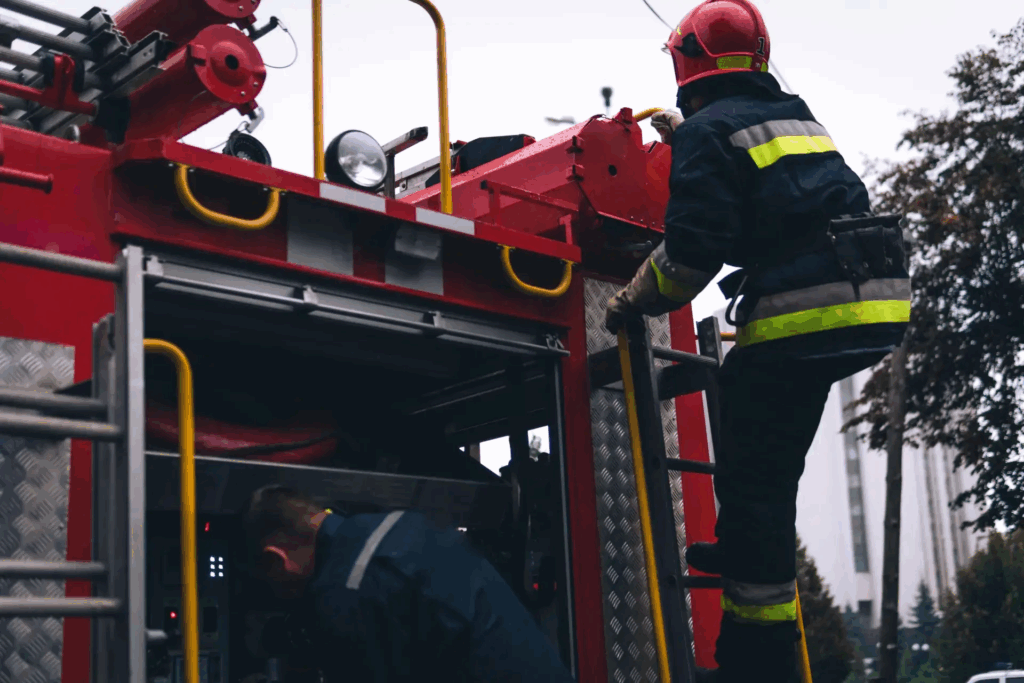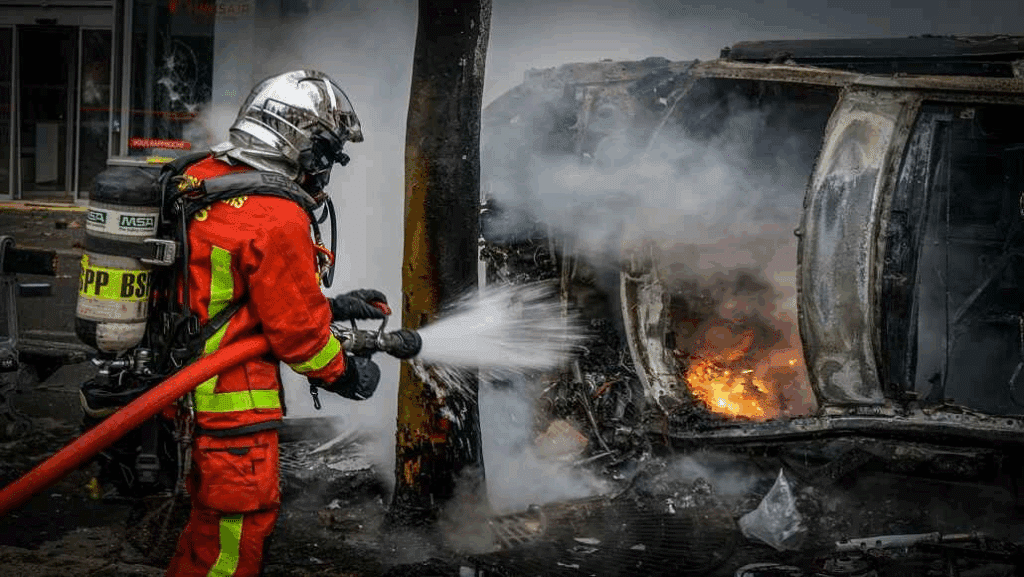In modern buildings, fire safety is often synonymous with technology. Sprinkler systems, smoke detectors, and fire alarms are all designed to respond instantly in case of an emergency. However, even the most sophisticated fire safety systems are not infallible.
Equipment can fail, maintenance schedules can be delayed, or unforeseen circumstances may render automated systems temporarily inactive. In these moments, human vigilance becomes the most critical line of defense. This is where emergency fire watch services step in—ensuring that fire risks are monitored and mitigated effectively, even when technology falls short.
Understanding the Risks of Fire System Failures
Fire safety systems are installed to detect hazards early and respond automatically, but they rely heavily on proper installation, regular maintenance, and uninterrupted operation.
Unfortunately, mechanical failures, power outages, or environmental factors can compromise their functionality. A malfunctioning sprinkler system or an inactive alarm could mean the difference between containing a small fire and experiencing a catastrophic loss.
In commercial buildings, construction sites, or large-scale facilities, the stakes are even higher. Fire incidents can escalate quickly, threatening lives, property, and business continuity. Without immediate oversight, small sparks or overheating equipment may go unnoticed, increasing the potential for major damage.
Recognizing these vulnerabilities is the first step toward implementing a robust fire safety strategy.
The Role of Emergency Fire Watch Services

Emergency fire watch services serve as a critical safety net when traditional fire systems fail or are temporarily offline. These services deploy trained personnel to monitor at-risk areas, identify potential fire hazards, and respond swiftly in the event of an emergency.
Unlike automated systems, fire watch guards provide situational awareness, judgment, and adaptability, allowing them to address risks that sensors or alarms might miss.
These professionals are not just passive observers. They actively patrol buildings, ensure clear access to fire exits, verify that fire doors and extinguishers are functional, and communicate immediately with local fire departments when a threat arises. Their presence is particularly vital during periods of maintenance, system upgrades, or construction work, when fire safety infrastructure may be partially compromised.
Legal and Regulatory Importance
Many jurisdictions require emergency fire watch services by law when a building’s primary fire protection systems are offline. Regulatory bodies recognize that temporary lapses in automated protection pose significant safety risks. In these situations, failure to implement a fire watch can result in fines, legal liability, or even closure of a facility.
Compliance is not merely a matter of avoiding penalties—it directly protects human life and property. A proactive approach that incorporates emergency fire watch services ensures that organizations meet both legal obligations and ethical responsibilities.
In environments like hospitals, schools, or high-occupancy residential buildings, having trained personnel monitoring fire risks can prevent devastating outcomes.
When Fire Watch Services Are Most Needed
Emergency fire watch services are particularly essential under certain conditions. During planned maintenance or system repairs, a building’s fire suppression and detection systems may be offline, leaving the property vulnerable.
Similarly, in construction zones, temporary wiring, flammable materials, and other hazards increase the likelihood of fire incidents.
Other scenarios include equipment malfunction or unexpected system failure. For instance, a sudden sprinkler system outage or a non-functional alarm in a high-rise building can create an urgent need for human monitoring.
Emergency fire watch services provide immediate coverage, ensuring that even in the absence of automated systems, safety protocols remain in effect.
Benefits Beyond Compliance
The value of emergency fire watch services extends beyond regulatory compliance. First and foremost, they provide peace of mind for building occupants, managers, and business owners. Knowing that trained personnel are actively monitoring potential hazards reduces anxiety and reinforces a culture of safety.
Additionally, fire watch personnel can identify vulnerabilities that may not be apparent to building staff. Through regular inspections and vigilant patrolling, they help prevent small issues from escalating into major incidents. This proactive approach can ultimately save lives, protect property, and reduce insurance costs associated with fire damage.
Integrating Fire Watch Into a Comprehensive Safety Plan
Emergency fire watch services should not be viewed as a standalone solution but as part of a comprehensive fire safety strategy. Organizations can integrate these services with routine maintenance schedules, staff training programs, and emergency response protocols to create a multi-layered safety network.
Building managers should coordinate closely with fire watch teams to ensure clear communication and swift action in case of an incident. Documenting patrols, hazard observations, and any emergency responses helps maintain accountability and enhances overall preparedness. By combining human vigilance with technological safeguards, organizations create a resilient approach to fire safety.
Choosing the Right Emergency Fire Watch Provider
Selecting a reliable provider of emergency fire watch services is critical. Look for teams that employ trained and certified personnel with experience in risk assessment, fire safety protocols, and emergency response. A competent provider will tailor services to the unique risks of your facility, ensuring thorough monitoring and rapid response capabilities.
Organizations can learn more about professional fire watch services by consulting experts, such as emergency fire watch services, who provide trained personnel to safeguard buildings when fire systems are compromised. Partnering with experienced teams ensures that your facility remains protected during vulnerable periods, maintaining both compliance and safety standards.
Conclusion
Fire safety is an indispensable aspect of modern building management, but even the most advanced systems are not immune to failure. Emergency fire watch services provide an essential safeguard, offering human oversight, rapid response, and compliance with legal requirements. They are particularly crucial during maintenance, system outages, or construction work, where fire risks are heightened.
Beyond regulatory obligations, these services contribute to peace of mind, hazard prevention, and the protection of life and property. By integrating emergency fire watch personnel into a comprehensive fire safety strategy, organizations ensure that safety remains a top priority—even when automated systems fail. Vigilance, preparation, and professional oversight are the keys to a secure and resilient environment, underscoring the indispensable role of emergency fire watch services in modern fire safety management.

